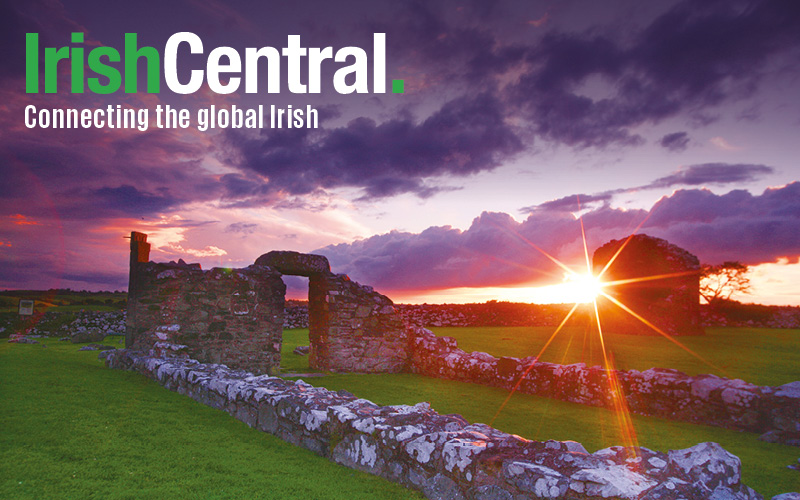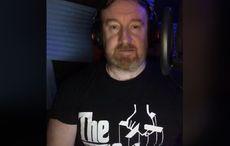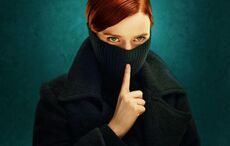In his controversial new book, Brothers: The Hidden History of the Kennedy Years, David Talbot, the founder of Salon.com, tells the story of the exalted Irish American dynasty from the perspective of their inner circle. It's the story of two brothers, sharing an unprecedented bond, and the never before told tale of Robert Kennedy's secret, heart rending search to track down JFK's killers before his own assassination. CAHIR O'DOHERTY speaks to Talbot about his work.
ON November 22, 1963 the Secret Service selected a distinctly unsafe motorcade route through midtown Dallas, culminating in a slow, hairpin turn onto Elm Street where President John F. Kennedy met his death.
The tall buildings, grassy knoll, and overpass that turned Dealey Plaza into a perfect crossfire shooting gallery were not secured at all. Motorcycle patrolmen protecting the presidential limousine followed loosely behind instead of tightly surrounding the vehicle.
There were no Secret Service agents on the limousines running boards, and agents were ordered by Secret Service officials to stay away from the rear of the vehicle.
If all of that strikes you as just a little suspicious, you might be surprised to discover that your doubts were shared by no less a person than the president's own brother, Robert. For decades it has been a mystery why Bobby Kennedy apparently did nothing to investigate his brother's shocking death.
In his meticulously researched and evocatively written new book on the assassination and its aftermath, Brothers: The Hidden History of the Kennedy Years, David Talbot claims that Robert Kennedy never resigned himself to the lone gunman theory.
On the contrary, Bobby believed that President Kennedy was the victim of a powerful conspiracy. And he spent the rest of his life secretly searching for the truth about his brother's murder.
"It's odd to think this today, because the Irish are so ensconced in political power now, but the Kennedys, being both Catholic and Irish, were an affront to many in the American political establishment," says Talbot during an interview with the Irish Voice.
"The establishment of the national security world was white Protestants mostly from British backgrounds. They felt the Kennedys were upstarts. The Kennedys felt it too, they even joked about it."
But the real objections to the two brothers were political, not personal.
"The Kennedys were trying to end the cold war," says Talbot flatly. "And they were seen to be trying to do this before its time. JFK was alarmed by the possibility of a nuclear war that could start without his command. That's what Arthur Schlesinger, the famed Kennedy historian told me, that he was deathly afraid of the scenario where some situation in the world would get out of hand, and then a military commander would go haywire and start World War III.
"JFK wanted to defuse that nuclear tension in the world, and he and the Soviet leader Nikita Khrushchev were attempting to do just that after the Cuban missile crisis, which had deeply traumatized both men."
The Kennedy pursuit of the end of the Cold War, Talbot maintains, set off a reaction within both of their military establishments in Washington and Moscow. "Ironically though," says Talbot, "Khrushchev was removed non-violently from office, whilst Kennedy wasn't."
The implications of that statement make for shivers. Talbot is aware of this.
In the introduction to his book he quotes a statement made by Robert Kennedy in 1968 that serves as a curtain raiser for both the book and its conclusions: "I found out something I never knew. I found out that my world was not the real world."
Talbot's investment in the book is both personal and political, of course.
"It was one of the traumatic events of my own youth," he says, referring to RFK's assassination. "I worked on Bobby's campaign as a teenager in Los Angles and I will never forget the night he was killed. To live through it as I did as a kid when you really felt that the country was going down a very dark tunnel, with the war in Vietnam and the civil strife at home. It was not completely dissimilar from where America is today.
"And to have so much hope invested in one man, the martyred brother of JFK. To see the crowds respond to him he really was America's last best hope. I feel that after those three assassinations in the 1960s and many people in my generation did too that America went off the tracks, that it got lost actually. This book is an effort on my part to try and make sense of that."
The book is also full of powerful and ironic parallels between the political issues of then and now. A top secret CIA memo authored by Sherman Kent, chairman of the CIA's Board of National Estimates, in 1962, drew a sobering picture of what would likely happen if U.S. troops stormed Cuba.
The good news, Kent wrote, is that initial resistance from Castro's forces would melt away within a few days of the U.S. invasion. Euphoria would reign as Washington promised to turn over control of the nation as soon as possible to the Cuban people.
Then the situation would quickly deteriorate, Kent predicted. Substantial numbers of Castro's forces would survive the initial assault and would continue a guerilla resistance in the country's interior. Much of the Cuban population would support this resistance against Yankee imperialism.
Pacification of the country would be long delayed. The U.S. military would become an occupation force.
Meanwhile the U.S.'s international standing would suffer as the result of its unilateral military action, heightening suspicions about U.S. power in the rest of the world.
"Over four decades later," Talbot writes, "the Kent memo still has a startling, revelatory power."
Cuba, Talbot suggests, was the Iraq of its day. "Not in the sense that there was an invasion that got bogged down and became an occupation like we have today JFK made sure that didn't happen," he says.
"But there was a geo-political whirlwind of political forces and military forces all swirling around this tiny island nation. It was seen to be the global battleground between two overwhelming ideologies arrayed against each other at the time. It was the key Cold War battleground, and of course the world almost ended over this tiny island nation with the Cuban Missile Crisis.
"Bobby thought the assassination plot came out of this shadowy underworld. It was the key area in which these militaristic forces were engaged. The CIA became increasingly defiant of the Kennedy leadership, particularly after the Bay of Pigs, the split between the Kennedys and the National Security hardliners only got wider and wider.
"It was a traumatic rupture. I discovered the Kennedy administration was a government at war with itself. There was a reason why on the afternoon of November 22, 1963 that Bobby's mind went to that particular area where he thought the most divisive and bitter split within the government was."
For Talbot the political landscape of the present day is in large part a reaction to the idealism of the Kennedy years.
"It's a cry of protest not only to what happened to the Kennedy family, but also to my country. I think America has never gotten over the trauma of the Kennedy years," he maintains.
"I think we're still wrestling with the legacy of the 1960s. Certainly the current administration is a reaction to the idealism of that time, which in Bush quarters was seen as reckless, self-indulgent and nave time. Even though he himself was a member of that generation, he was of course a very different type of person."
Talbot has a gift for blending the political with the personal, and in this way he never loses sight of principal players. The nation loses a president and a further presidential candidate, with incalculable cost to the nation.
But the other cost, the human cost, is never overlooked. As reporters, military officers and Secret Service members jostle and crowd the corridors of the Washington hospital where JFK's autopsy is underway, Talbot delivers a quote that brings the whole scene vividly to life:
"While Bobby Kennedy made a flurry of phone calls, the relatives consoled the president's widow, who was still wearing her murder scene clothes. There was this totally doomed child, with that God awful skirt, not saying anything, looking burned alive."
Several attempts were made to encourage Jackie to change out of her dress, which was still covered in bloodstains and gore from the shooting. But she refused all requests.
"Let them see what they've done," she said.
Alongside the author and RFK himself, Jackie firmly believed the assassination was the work of more than one man.
(Brothers: The Hidden History of the Kennedy Years, is published by Free Press and will be available on May 8.)




Comments